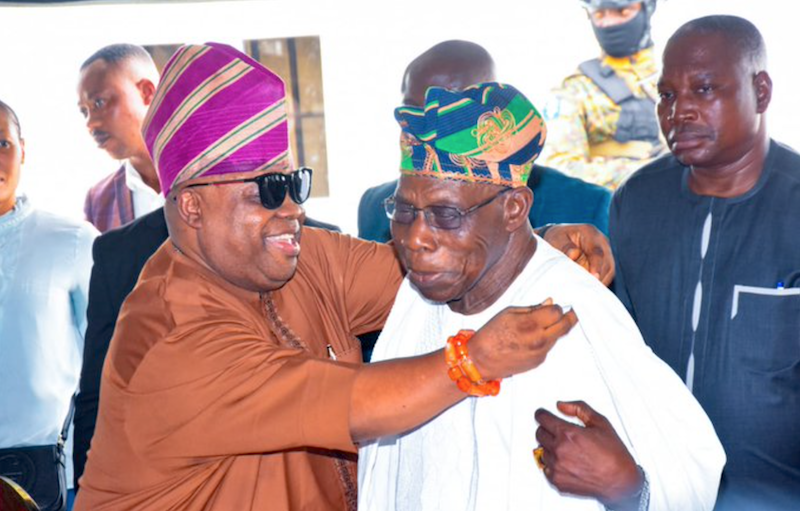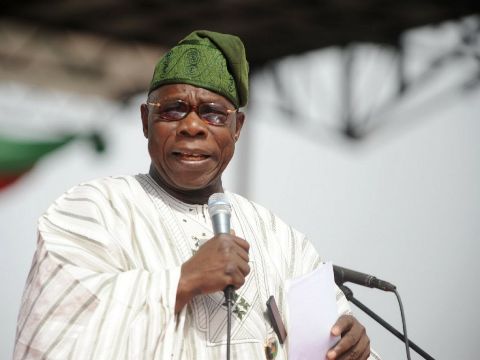Former President Olusegun Obasanjo has advised State Governors to focus more on food security while calling on them to prioritise policies that enhance people’s well-being.
Obasanjo gave the charge on Wednesday in Sokoto at the unveiling of 136 housing units purchased at the cost of N1.8 billion by the Sokoto State Government for allocation to low income earners.
The former president was in Sokoto on a two-day visit to unveil projects executed by Gov. Ahmed Aliyu as part of his one year anniversary.
Obasanjo described food security as a priority, followed by personal health and security situation, adding,”good feeding enhances health and other productive engagements.”
He acknowledged the efforts of Aliyu, who he described as a ”leader running a good race in the areas of transportation, road construction, agriculture and housing projects”.
”Your strong, energetic and resilient qualities in leadership have made you to get it all within one year.
“Putting all these in place will surely brighten your chances of seeking a future mandate without stress.”
Earlier, Aliyu said the idea of coming up with numerous housing projects was to fulfil his campaign promises to deliver human-oriented projects that would improve the welfare and standards of the people in the state.
Aliyu explained that the state government has set up committees on completing and initiating similar projects across the state.
They include road constructions, youths and women empowerment, water supply and agricultural inputs for farmers as well as equipping hospitals.
“We are determined to continue developing the state for proper repositioning; we shall provide state-of-the-art facilities at all sites including Islamiyya schools, markets and playgrounds, among others,” he said.
Aliyu said that the houses were acquired from the Federal Government for the citizens in the state to own based on owner-occupier basis in order to address the growing need for shelter in the state.
He appreciated the former president for honouring the state’s invitation to be part of history.


![Obasanjo farm, 27 feeders downgraded from Band A to E under IBEDC [ SEE FULL LIST]](https://thenewsguru.ng/wp-content/uploads/2024/04/IMG_20240406_201356.jpg)

